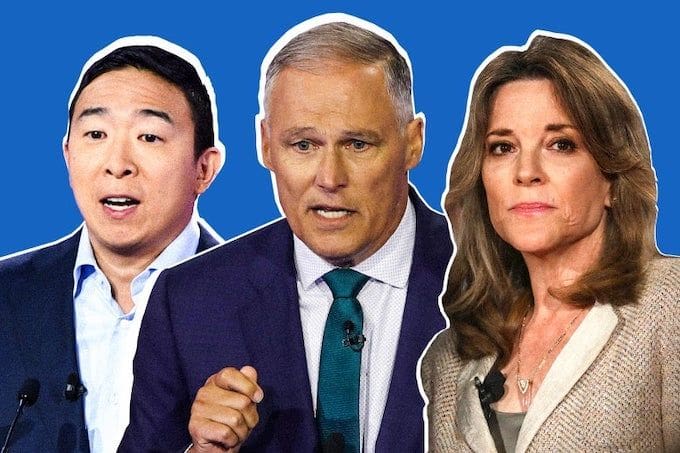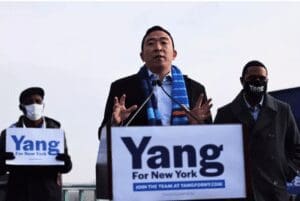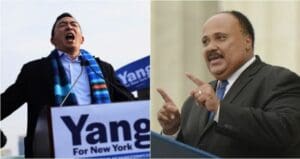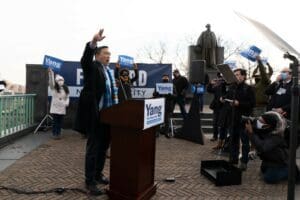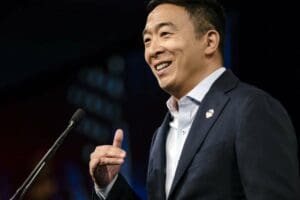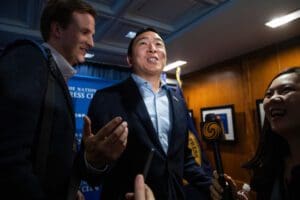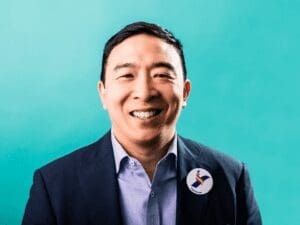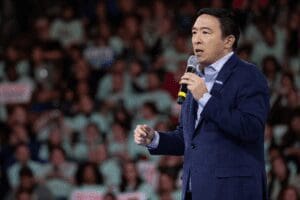The Democratic debates this week demonstrated that change isn’t just coming: It’s here. To watch Elizabeth Warren and Bernie Sanders dominate onstage against their more moderate foils was to realize that their positions are no longer marginal. CNN’s questions Tuesday night seemed designed to challenge the left-leaning proposals. That those positions were well-defended—and not unique to a single candidate—is a sign they may be more robust than conventional models suggest. Conditions have changed. During the exchanges over health care, it was clear there wasn’t an outlier “Medicare for All” proponent who could be treated (or dismissed) as a kook. The proposal was closer to the default position. It’s supported by a majority of candidates, and this time the dissenters were on their heels. Time and again the audience heard a Democrat decrying a system that honors the profit-seeking desires of private insurers over Americans’ desire to avoid medical bankruptcy. This is new, and the valorization of bipartisan compromise has been similarly flipped on its head: Mitch McConnell has made the idea of governing by reaching across the aisle not just unworkable but fantastic; no serious person can entertain the possibility that Democratic priorities can be achieved with Republican cooperation.
In short, the moderate positions, the hoary, respectable “sensible” positions, have been evacuated of the pragmatism that once gave them force. And so, while Biden’s back-to-Obama positions (rejoin the Paris agreement that is now clearly insufficient, keep the Affordable Care Act) have enough appeal to put him in the lead, the positions staked out by the 20 presidential candidates—most of whom are to Obama’s left—suggest a new center of gravity.
This shift is clear enough from the candidacies of Elizabeth Warren and Bernie Sanders, but it’s been crystallized in a different way by the ostensible no-chancers on the debate stage. No party’s political terrain is defined by its most idiosyncratic members, but minor players offer an interesting lens into how the distribution of political energy has shifted since 2016. Issues championed by movements that were once considered outside the political mainstream, especially concerning criminal justice reform, climate change, and drastic inequality, are now central tenets of the Democratic contest.
One result is that the top-tier candidates with more moderate records—not progressives—struggled with defending their positions (Kamala Harris on her history as a prosecutor, Joe Biden on the crime bill). But this was also true of the low-polling moderates who found themselves in a “heel” position, like Johns Delaney and Hickenlooper, who failed to connect or win applause with their defenses of private industry.
The presidential nominee is likely to emerge from the front-runners. But the way the rest of the field performed and was received during these debates says something too about where the party is today. And as much as someone like Delaney conveyed one lesson, another was imparted by fringe candidates like Marianne Williamson and Andrew Yang—folks with no government experience at all—or current officials with minuscule polling like Tulsi Gabbard and Jay Inslee. All four were on the winner’s side of a “viral” moment or two, and it’s worth thinking about why.
In some cases—like Yang and Inslee—what the candidate offers, through their commitment to a single issue, is an intensified expression of a need whose urgency gets buried among the heaps of policy positions the front-runners have to lay out. Yang’s pet issue is universal basic income, which he sees as a step toward addressing income inequality and lost jobs through automation. It’s a little out there, but he turned almost every answer on seemingly different issues into an account of why it matters, and framed the idea as deeply American (supported by Martin Luther King Jr.) and grounded in the challenges facing the working class today: “Raise your hand in the crowd if you’ve seen stores closing where you live. It is not just you. Amazon is closing 30 percent of America’s stores and malls and paying zero in taxes while doing it.” Yang connected with humor—“We need to do the opposite of much of what we’re doing right now, and the opposite of Donald Trump is an Asian man who likes math”—and with a weary realism about the gap between the “great” economy Trump keeps bragging about and people’s experience on the ground: “It’s gotten so bad that American life expectancy had declined for the last three years.”
Inslee sees climate change as a true national and global emergency, and unlike most of the other candidates, he treats it that way. It’s the subject he keeps going back to; he does not hand-wave or move past it to address other questions, because it is, in his view, not just an emergency but the emergency of the moment. (He’s probably right, and yet no front-runner can afford that kind of laser-focused vision.)
Other fringe candidates aren’t so much focused on a pet issue as they are nimble “pinball agents” who gather speed and momentum by striking a familiar subject differently. I wouldn’t have guessed, for instance, that Marianne Williamson, a wealthy white “spiritual leader,” would be the candidate to most effectively argue for reparations on Tuesday night. (This might have worked differently had she appeared on Wednesday, where the candidates were not all white.) Still, Williamson’s unexpected angle of approach works in saturated terrain. As Shannon Palus wrote in Slate, she combines an American appetite for “hard truths” with an equally American preference for appealingly vague scientific metaphors over the dreary wonkiness of scientific facts.
Gabbard’s primary identity as a candidate is as an anti-war veteran, but she also put some unexpected spin into the discussion by tackling Harris’ record as part of her condemnation of the criminal justice system. Condemning it as “disproportionately negatively impacting black and brown people all across this country today,” Gabbard accused Harris of putting “over 1,500 people in jail for marijuana violations and then laughed about it when she was asked if she ever smoked marijuana.” She also accused Harris of blocking evidence that would exonerate innocent men and fighting to keep the bail system “that impacts poor people in the worst kind of way.” She connected—because the challenge had some merit and deserved a response.
The lower-tier candidates have a function and an incentive to keep smashing the frame of conventional politics in order to make that frame visible. They’re also exposing the utter (even suicidal, according to some) inadequacy of positions that in politics have typically been regarded as sensible and moderate. Against Biden’s jovial reassurances that we can all return to the Obama years and everything will be fine, Williamson, Yang, and Gabbard embraced apocalypticisms that echo the real panic a lot of Americans are feeling. Williamson spoke of “dark psychic forces” in need of countering and injustice forming “a toxicity beneath the surface.” She connected this to racism and American history, but also to Trump. Here’s Yang:
This is going to be a tough truth, but we are too late. We are 10 years too late. We need to do everything we can to start moving the climate in the right direction, but we also need to start moving our people to higher ground. And the best way to do that is to put economic resources into your hands so you can protect yourself and your families.
Contrast this with Inslee’s opening statement, which, while dire, still operated in the register of hope: “I am running for president because the people in this room and the Democrats watching tonight are the last best hope for humanity on this planet.” Gabbard’s world-ending appeal was perhaps the most dramatic—and quite effective, as this was, indeed, what the people of Hawaii went through, even though most of Americans have forgotten Hawaii’s nuclear false alarm:
Now, as we stand here tonight, there are thousands of nuclear missiles pointed at us. And if we were to get an attack right here tonight, we would have 30 minutes, 30 minutes before we were hit. And you would receive an alert like the one we received in Hawaii last year that would say, “Incoming missile. Seek immediate shelter. This is not a drill. Seek immediate shelter. This is not a drill.” And you would see as we did, as my loved ones in Hawaii did, there is no shelter. This is the warmonger’s hoax. There is no shelter. It’s all a lie.
It’s a warning that might resonate with the way many people feel about our politics. There’s more than one response to crisis: There’s plenty of desire for a nostalgic return to when things felt safer, and there’s acknowledgment that things actually need to change. Biden’s lead means the former reaction is common, but the latter is no less real. The fringe candidates won’t win, and they shouldn’t; the objections many have to their candidacies are real and substantive. But they’re up there reflecting how the party has changed, and if they’re sounding less unreasonable than many expected, perhaps it’s because this moment requires a different articulation, and they are—as fringe candidates—in a better position to supply that. Their success, however limited in terms of national polling, is noteworthy. When they connected on that debate stage, the oddball candidates helped make apparent that the moderate position no longer feels moderate—or honest, or realistic, or pragmatic. And neither does rote fealty to bipartisan compromise.
Republicans used to have some plausible deniability when the left accused them of racism, corruption, privileging the rich, or wanting to criminalize poverty. Ronald Reagan knew not to say in public the explicitly racist things he said to Nixon on the phone. Trump has stripped that veneer and proved every one of those charges not just right but undeniable. The modern GOP has made the left’s case for it.










